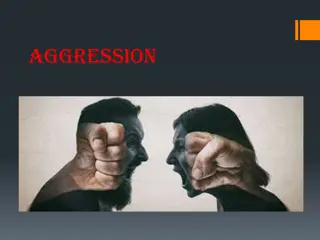Business Environment
The importance of internal and external factors in influencing business decisions. It covers the challenges presented by the business environment, the process of environmental analysis, and the tools used to monitor and evaluate the environment. The article also explores the significance of internal
10 views • 29 slides
Is Your Mobile App Prepared Understanding Store Rejection Factors
To avoid this pitfall, it\u2019s crucial to understand the potential rejection factors and ensure your app is polished and compliant before submission. As a leading best mobile app development services in Arizona, we at Net-Craft.com believe in transparency and preparation. In this article, we\u2019
1 views • 3 slides
Understanding Spondylodiscitis: Diagnosis, Treatment, and Prognosis
Spondylodiscitis is an infectious inflammation affecting the spine's discs and adjacent vertebrae, posing challenges due to potential complications like abscess formation. Early diagnosis and prompt treatment are crucial for a favorable outcome, focusing on infection eradication, pain management, de
0 views • 22 slides
Understanding Migration: Factors and Impacts
Explore the complexities of migration through push and pull factors, including forced and voluntary migration. Understand how political, economic, social, and environmental factors influence people's decision to move. Reflect on your own family's migration factors.
7 views • 19 slides
Understanding Contextual Factors in Curriculum Development
This chapter delves into the significance of internal and external contextual factors in shaping curriculum development. It discusses the process of gathering essential contextual data, identifying relevant sources, and integrating data to create an evidence-informed, context-relevant, unified curri
5 views • 31 slides
Overview of Neck Dissection in Head and Neck Cancer
Neck dissection is a crucial procedure for the prognostic and therapeutic management of head and neck cancers, particularly in cases where cancer has spread to the cervical lymph nodes. This process involves removing all lymph nodes and surrounding structures in the neck region to prevent the spread
8 views • 25 slides
Echocardiographic Assessment of Pulmonary Arterial Hypertension (PAH) Overview
Echocardiographic assessment plays a crucial role in the diagnosis, management, and prognostic evaluation of pulmonary arterial hypertension (PAH). This condition is characterized by elevated mean pulmonary arterial pressure and pulmonary vascular resistance, leading to various clinical features suc
6 views • 43 slides
Overview of Human Factors and Automotive Standards YouTube Series
This YouTube series, led by Paul Green from the University of Michigan, covers human factors and automotive standards. It includes topics like introduction to standards, core human factors standards, automotive human factors standards, human-computer interaction standards, and SAE vehicle standards.
7 views • 9 slides
The Main Factors That Influence the Consumer Buyer Behavior
Consumer buyer behavior is influenced by various factors such as cultural, social, personal, and psychological elements. Culture, social factors like family and opinion leaders, personal factors such as age, occupation, lifestyle, and personality, as well as psychological factors like motivation, pl
2 views • 8 slides
Understanding Pneumonia: Causes, Classification, and Risk Factors
Pneumonia is an infection of the lower respiratory tract that can be classified anatomically and etiologically. The common causes include bacterial, viral, and fungal pathogens, as well as aspiration pneumonia. Factors such as immune deficiency, overcrowding, and poor hygiene can increase the risk o
10 views • 37 slides
Factors Influencing Ethical Decision-Making in Business Administration
This presentation explores the various factors that influence ethical decision-making, focusing on significant individual factors such as personal moral philosophy, stage of moral development, motivation, gender, and experience. It emphasizes how individual, organizational, and opportunity factors c
9 views • 12 slides
Understanding Scale Factors and Ratios in Similar Figures
Explore the concept of scale factors and ratios in similar figures through visible learning intentions, warm-up exercises, and practical examples. Learn to determine the scale factor between two similar figures, use scale factors to find missing sides, and apply the knowledge in real-world scenarios
3 views • 13 slides
Analysis of Individual Risk Factors in Ventral Hernia Repair Outcomes
This study explores the impact of various risk factors on predicting adverse outcomes of ventral hernia repair using data from the Abdominal Core Health Quality Collaborative (ACHQC). The research aims to quantify and compare the influence of different factors, hypothesizing that hernia- and procedu
0 views • 14 slides
Understanding Malignant Melanoma: Types, Signs, and Prognosis
Malignant melanoma is a serious skin cancer with various types, including superficial spreading, nodular, acral lentiginous, lentigo maligna, and amelanotic. Recognizing early signs such as ABCDEF (Asymmetry, Borders, Colour, Diameter, Evolving, Funny-looking) is crucial for prompt diagnosis. Macros
2 views • 25 slides
Understanding Sports Training: Methods and Principles
Sports training is a systematic process aimed at enhancing performance and behavior through planned measures and organization. It involves physical exercises, scientific principles, and pedagogical strategies to improve skills and prepare athletes for competition. Key aspects include the use of prog
0 views • 14 slides
Understanding Structural Equation Modeling (SEM) and Quality of Life Analysis
Structural Equation Modeling (SEM) is a statistical technique used to analyze relationships between variables, including quality of life factors such as physical health and mental well-being. Quality of life is a multidimensional concept encompassing various aspects like social relationships, living
0 views • 21 slides
Factors Affecting the Hydrological Cycle: Understanding Physical and Human Influences
The hydrological cycle is influenced by both physical and human factors. Physical factors such as relief, vegetation, basin size, rock type, soil type, and climate all play a role in shaping the movement of water through the cycle. Human activities like forestry, urbanization, deforestation, mining,
2 views • 20 slides
Understanding Aggression: Causes and Solutions
Aggression is any intentional behavior aimed at harming others, whether physically, verbally, or emotionally. It can be instrumental or hostile. Biological factors like hormones and neural substrates, social/cultural factors such as frustration and provocation, and environmental/situational factors
0 views • 10 slides
Importance of Ideal Remuneration System and Factors Influencing It
Establishing an ideal remuneration system is crucial for organizations as it impacts employee motivation, retention, and overall performance. External factors like labor market conditions, cost of living, labor unions, and societal expectations play a role in determining wages. Additionally, interna
0 views • 24 slides
Understanding Environmental Factors in Terrestrial and Aquatic Environments
Environmental factors play a crucial role in shaping ecosystems. In both terrestrial (land) and aquatic (water) environments, organisms are influenced by abiotic factors such as temperature, light intensity, and pH, as well as biotic factors like plants, predators, and competitors. Understanding the
4 views • 19 slides
Factors Affecting Microbial Growth in Food: Intrinsic and Extrinsic Factors
In food, microbial growth is influenced by intrinsic factors like pH, water activity, nutrient content, and extrinsic factors such as environmental conditions. The pH level, moisture content, and water activity play crucial roles in determining the growth of microorganisms, with specific ranges affe
0 views • 23 slides
Role of Lymphadenectomy in Genital Malignancies
Pelvic and paraaortic lymph node evaluation is crucial in the surgical staging of gynecological malignancies. The goals of lymph node dissection are to determine disease extent and guide further treatment. Pelvic lymph nodes include common iliac, external and internal iliac, obturator, sacral, and p
0 views • 16 slides
Factors Influencing Customer Choice: Psychological, Sociocultural, Economic, and Government Factors
Psychological factors, such as perception and lifestyle, play a key role in customer choice. Sociocultural influences from society and culture also impact decisions, while economic factors like income levels and government policies can sway customer preferences. Understanding these factors is crucia
0 views • 18 slides
Enhancing Cancer Surveillance in Colorado: Statewide Biomarker Collection
Colorado's comprehensive cancer programs are focusing on enhancing cancer surveillance by collecting biomarkers and prognostic factors statewide. The initiative involves multi-phase implementation, bidirectional reporting for genetic counseling services, and increasing testing for targeted therapies
4 views • 17 slides
Comprehensive Guide to Factorization in Mathematics
Explore the concept of factorization in algebraic expressions, including the definition of factors, common factors, methods of factorization, and illustrated examples. Learn about finding factors, common factors, and various factorization techniques such as common factors method and regrouping of te
0 views • 13 slides
Evolution of Liver Biopsy in Children: ESPGHAN Position Paper
Liver biopsy plays a crucial role in diagnosing, staging, and prognostic evaluation of liver diseases in children. Indications for liver biopsy include diagnostic, prognostic, and monitoring purposes. Specific scenarios like neonatal cholestasis and progressive familial intrahepatic cholestasis requ
2 views • 47 slides
Atmospheric Modeling Task with Initial Conditions and Grid Setup
Create a model grid with 2D arrays for prognostic variables, set initial dry and adiabatic environmental conditions, introduce thermal and pressure perturbations, and visualize using GrADS. Define variables like velocities, perturbation temperature, and pressure fields, along with base state variabl
0 views • 27 slides
Prognostic Value of Post-PCI FFR and Intravascular Imaging in FAME 3 Trial
This study investigates the prognostic value of measuring post-PCI Fractional Flow Reserve (FFR) and intravascular imaging in patients with complex 3-vessel coronary artery disease (CAD), focusing on the impact on outcomes such as target vessel failure (TVF), including cardiac death, target vessel m
0 views • 15 slides
Ecological Factors and Climatic Influences on Plant Life
Ecological factors play a crucial role in shaping the environment for organisms to thrive. This includes living (biotic) and non-living (abiotic) components like climatic factors, edaphic factors, topographic factors, and biotic factors. Climatic factors such as light, temperature, water, wind, and
0 views • 14 slides
Management of Malignant Ascites in Advanced Cancer: ESDO Learning
Malignant ascites is a challenging complication of advanced cancer, impacting patient quality of life and survival. Diagnosis involves imaging and cytology, with poor prognostic indicators. Management includes symptom relief with diuretics, paracentesis, and catheter options. Refractory cases presen
0 views • 7 slides
Next-Generation Sequencing in Clinical Practice: Advancements and Applications
Next-Generation Sequencing (NGS) has revolutionized genetic analysis in healthcare. Dr. Alexandros Spyridonidis, a renowned expert in the field, discusses the impact of NGS on diagnostics, prognostics, and personalized medicine. The technology allows for more comprehensive understanding of diseases
0 views • 38 slides
Metabolically Healthy Obesity and Cancer Risk: Investigating the Link
Excess body weight is a known risk factor for cancer, but not all obese individuals exhibit metabolic abnormalities. This study explores the concept of metabolically healthy obesity (MHO) and its association with cancer risk, aiming to understand the unique patterns of risk transmission compared to
0 views • 17 slides
Understanding Factors and Prime Factors in Mathematics
Explore the concept of factors and prime factors through practical scenarios involving Jedward, stationary supplies, and school choirs. Learn how to find factors of numbers like 18 and 30, identify prime numbers, write numbers as products of prime factors, determine common factors, and calculate low
0 views • 19 slides
Understanding Mesopic Factors in Roadway Calculations
Exploring the incorporation of mesopic factors into roadway calculations and how different design luminance ranges and Scotopic/Photopic (S/P) ratios interact with various calculation methods. The discussion includes factors as defined in TM-12 and proposed for RP-8, along with IES RP-8's Mesopic Fa
0 views • 37 slides
Electrocardiographic Abnormalities and Cardiovascular Disease Risk in Type 1 Diabetes
This study examines the association between ECG abnormalities and incident CVD events in patients with type 1 diabetes, focusing on the prognostic significance in a population where CVD develops earlier. Major and minor ECG abnormalities were classified, with cardiovascular events such as myocardial
0 views • 16 slides
Elevated Resting Heart Rate in Heart Transplant Recipients: A Prognostic Indicator?
Elevated resting heart rate is being investigated as a potential adverse prognostic indicator in heart transplant recipients. This study aims to determine if sustained tachycardia increases the risk of all-cause mortality and cardiac allograft vasculopathy in these patients through a retrospective a
0 views • 21 slides
Factors Influencing Gestation Length in Various Animals
This comprehensive guide explores the factors affecting gestation length in different animals, including cattle, mares, sheep, goats, camels, buffaloes, dogs, and cats. It covers factors that prolong gestation, such as genetic factors, deficiencies in minerals and vitamins, anomalies in the fetus, a
0 views • 18 slides
Targeting Interventions by Risk, Need & Responsivity in Criminal Justice System
Understanding the Risk Principle, Prognostic Risks, Need Principle, Risk & Needs Matrix, Specific Responsivity, and Case Planning in managing offenders through targeted interventions based on their risk levels, clinical needs, and responsivity to rehabilitation services.
0 views • 20 slides
Cross-National & Cross-Cultural Risk Factors for Offending
Explore key risk factors for offending across nations & cultures, analyzing homicide rates, structural differences, individual/family factors, and the generalizability of crime risk factors. Learn about findings related to impulsivity, achievement, conduct problems, family supervision, parenting sty
0 views • 13 slides
Factors Influencing Voting Behavior: A Comprehensive Analysis
This essay evaluates various factors influencing voting behavior, including media, social class, age, gender, geography, ethnicity, party leader image, issues, rational choice, party affiliation, tactical voting, dealignment, third-party choices, and non-voting. It discusses the relative importance
0 views • 12 slides







































